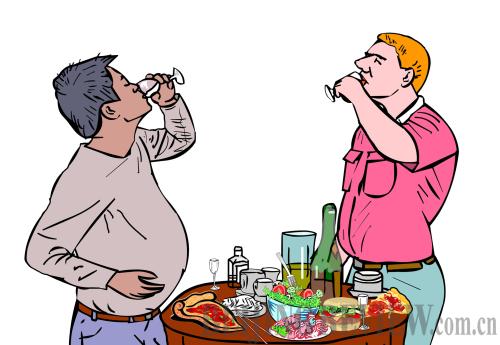|
 |
|
(LI SHIGONG) |
The popular toast, meaning "empty glass," was uttered at least a dozen times each over the course of a 10-dish meal at a banquet in Xiamen, Fujian Province. Behind our plates were two glasses, one for red wine and a smaller shot glass for the fiery baijiu, a type of strong Chinese liquor containing 40 to 60 percent alcohol by volume and served at room temperature. Foreigners regard baijiu as a kind of initiation ritual—a trial by firewater.
After the fifth or sixth drink I began to doubt my fortitude, and considered declining the next toast politely. But when I noticed a colleague across the table turning bright red from an apparent alcohol allergy, and stubbornly keeping up with our hosts, I was inspired to uphold Chinese drinking etiquette and accept the next three or four offerings.
Upon finishing one last round of ganbei my host and I tipped our glasses upside down—a gesture that appears to be both a sign of respect and a show of proof that no one is bluffing their way out of baijiu. I declined the next drink using the only Mandarin phrase I knew to express surrender, buxing, which means "impossible."
The art of hazing, I found, is not restricted to college campuses in America. In China, you could call it business. In smaller provincial areas, in particular, the amount one can drink has implications for their career ability to build relationships in a company. In bigger cities like Beijing and especially Shanghai, however, the tradition of hard drinking has tempered in recent years due to concerns about public health.
Hours earlier I had read a book about Chinese customs and etiquette on the flight from Beijing. It was a short read, covering the basics of meeting people and doing business, and included a brief section on drinking culture. Despite the primer, I stared with some bewilderment at the intricacy of the occasion. The presence of wine, the frequent standing and sitting on cue with my peers, and the unintelligible language felt a bit like attending Catholic Mass in Latin, but with rice instead of bread.
China's history of alcohol consumption dates back 5,000 years. Famous Tang Dynasty (618-907) poet Li Bai (701-762), known as "the saint of alcohol," wrote a poem entitled Drinking Alone in the Moonlight. But in present-day China, drinking is always a group activity.
The rules governing the quality and quantity of consumption range from the very relaxed to the highly refined. In the evenings, China's narrow residential streets fill with the smell of barbecue and the sound of clinking glasses of Tsingtao beer. Men sit around plastic tables, often shirtless in the summer heat, and play drinking games like Liar's Dice, which involves attempting to deceive fellow players in a contest of "you lose, you drink."
Karaoke is another popular place of revelry, where the ever-present rattling of dice adds the sound of percussion to Chinese pop ballads while beer bottles pile up on a large table. Here, the drinking is informal compared to the singing, which is often a passionate display.
Although I miss the pub culture of the United States, with its relaxed atmosphere and go-at-your-own-pace attitude, I enjoyed the challenge and camaraderie of partying with the Chinese. I'll even admit feeling a sense of pride when the host declared approvingly, "American friend can drink!"
Perhaps so, but let's take it easy on the baijiu.
The author is an American living in Beijing
Email us at: liuyunyun@bjreview.com | 